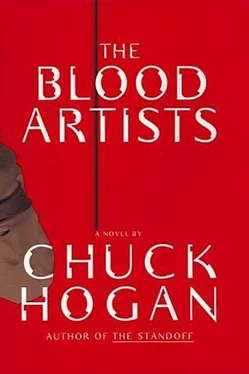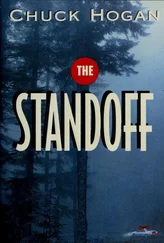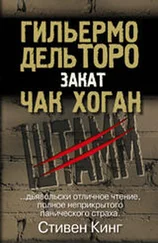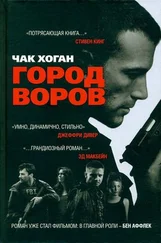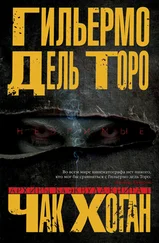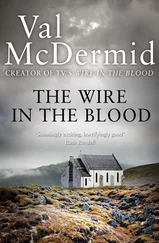Following the royal banquet, Peri and I repaired to the hotel bar for a champagne nightcap, the electricity of the day still coursing through us. My excitement I understood, but hers surprised me, and interested me. For two years in Atlanta, we had shared nothing more than a working relationship. I heard her shoes fall to the floor beneath the table, and watched her mouth as she laughed. I had not been drunk in years. The steady, interested blue of her eyes, moistened by the champagne, caught some of the magic of the chandelier. The clumsy embrace that began in the mirrored elevator on the ride up to the top floor continued more gracefully behind the door to my top-floor suite. There was at first the revelatory exhilaration of intimacy with a close associate, like a hunger choking us both, followed by the fumbling of zippers and buttons and the culminate unveiling of each to the other as we stood beside the high bed. My hands found her warm hair, her neck, her crotch. The preliminary sacredness of touch accelerated to bold groping and grasping, and the sheets tangled around us, twisted and grew warm.
Afterward, I had found the release of orgasm to be rousing rather than narcotizing and lay staring at the thickly papered walls by the light of the city, diffuse through the lace-veiled window, as synapses fired within the charged nebula of my brain. The events of the day came flooding back, but the accolades felt empty again, the honor a cheat. It was Africa, still haunting me. Within every doctor’s psyche resides that patient from early in his career, the one who touched him and whom ultimately he failed, and who becomes the secret source of all his healing efforts. I lay there on that strange Nobel night not with Peri Fields, not in a hotel suite, and not even in Stockholm, but a world away, in a camp shanty in deepest Africa, next to the writhing form of a nine-year-old girl corrupted by a pitiless disease.
After a time I did sleep, and awoke to the sound of the door closing. Peri’s clothes were gone from the floor, and I sank back against the pillow as remorse seized me all at once. That night seemed a terrible mistake suddenly, a selfish stab at my own loneliness that had perhaps sabotaged a perfect working relationship.
I arose and showered automatically, due that morning at a Nobel symposium arranged early to accommodate my schedule. I dressed alone in the solitude of the hotel suite, the tableau of bedsheets creased and tugged. out from beneath the mattress resembling the scene of some passionate crime, to be repaired by the proper authorities in the form of a humming chambermaid.
The symposium concerned the alarming spread of infectious disease around the globe. Before the question-and-answer period, a video program was played on the large screen behind me, entitled The Disease Dilemma, a one-hour documentary concerning recent health scares around the world and the Bureau for Disease Control’s vanguard role in managing and preventing them. The program had been Peri’s brainchild, having debuted on one of the global satellite networks that previous Monday and been available on-demand for downloading since. It was the highest-rated worldwide prime-time broadcast of that week, with tens of millions of viewer hits since, and I was the host.
It had been Peri’s strategy, which I had agreed to and signed off on, that as director of the world’s preeminent health organization, I was to be promoted to the public as a spokesman for good health and clean living. This was done most expressly in the bureau’s numerous Health Promotion campaigns for children, but The Disease Dilemma represented a quantum leap forward in terms of popular exposure, and at the time had struck me as a unique opportunity to educate the world about disease prevention. But now, as my voice carried over the heads of the luminaries assembled in the Royal Caroline Medico-Chirurgical Institute auditorium, the program felt dishonest. The role of health messiah seemed to me now a cheap part we could have hired an actor for, or even commissioned a cartoon mascot. I looked down at the day-old Nobel weighing heavily in my lap — it had been suggested that I wear it around my neck, in the manner of an Olympic athlete, which I had respectfully declined — and felt suddenly nothing, which was wrong. It was a significant award, conferred for advancements made in the interests of humanity; for me, there could be no higher praise. Yet the ghost of Africa, like a creeping stain, corrupted all. I was a fraud who had violated my oath by having been complicit in the expedient murders of dozens of camp workers, and though no one ever learned of the firebombing — Peter had seen to that — I felt somehow certain that the more accolades I received, the worse my ultimate retribution would be.
Part of the reason for this was the dark shadow that had followed us back from Africa. The lethal camp virus had inexplicably emerged in the United States fifteen months after our return, achieving worldwide infamy with a massive outbreak in the small town of Plainville, Massachusetts. The Plainville plague was a catastrophe unrivaled in the modern era of disease control, such that the term itself, “Plainville,” not only came to denote the name of the virus, but entered the popular lexicon as a site of mass disaster, such as Chernobyl, or Bhopal. Plainville claimed more than twenty thousand human casualties, including entire neighborhoods of nearby towns — though, as far as the public knew, that had been the end of it. In fact there had been four subsequent isolated outbreaks. None was as devastating nor nearly as widespread as Plainville, thanks to the efforts of the BDC in containing the spread of the raging virus, and therefore, with no immediate threat to the public at large, the outbreaks were covered up in order to avoid hysteria and undue media scrutiny. The secret was closely held; even Peri Fields was not aware of the post-Plainville reemergences. Six times since Africa, the Plainville virus had materialized, poisoning every living thing it touched before vanishing without a trace, only to rise up again some months later in another state, with no discernible link between events. Enigmatically, there had been no connecting outbreaks — no other victims of the disease — between the uranium camp in the Congo and Plainville, USA. Its incursion into North America remained a mystery.
Now the program was ending. I listened to myself embellishing the extent of my actual field participation, furthering the superhero image — and cringed, ashamed to know that my hubris had crossed the line into a lie. The truth was, I had not attended the site of any outbreak in the thirty months since I had become director. I had never even gone to Plainville.
The lights came back on and hands went up among the international press assembled in the hall. A British accent: “Dr. Pearse, simply put: Why are so many becoming so sick?”
I nodded, though the question itself was unanswerable. “One of the lessons of what we now call the ‘antibiotic era’ of the previous century was that as weaker microbes fall away, more resilient ones survive and emerge, and sometimes with a vengeance. We will never eradicate viruses or bacteria from the earth, nor should we. What we as a people must do is to seek to control viruses, as man has learned to control fire, as we control and continue to legislate against crime.”
Another question. “Do you agree with your president’s statement that ‘America is no longer the world’s policeman, it is its doctor’?”
“I do, but not as a slight to the other world international-disease-fighting organizations. Our world is shrinking, and the bureau has, for better or for worse — I think for the better — stepped to the forefront of global disease control.”
“What do you think it means that your co-recipient, Dr. Peter Maryk, did not attend the award ceremony? Do you consider it a snub to the Nobel Foundation?”
Читать дальше
